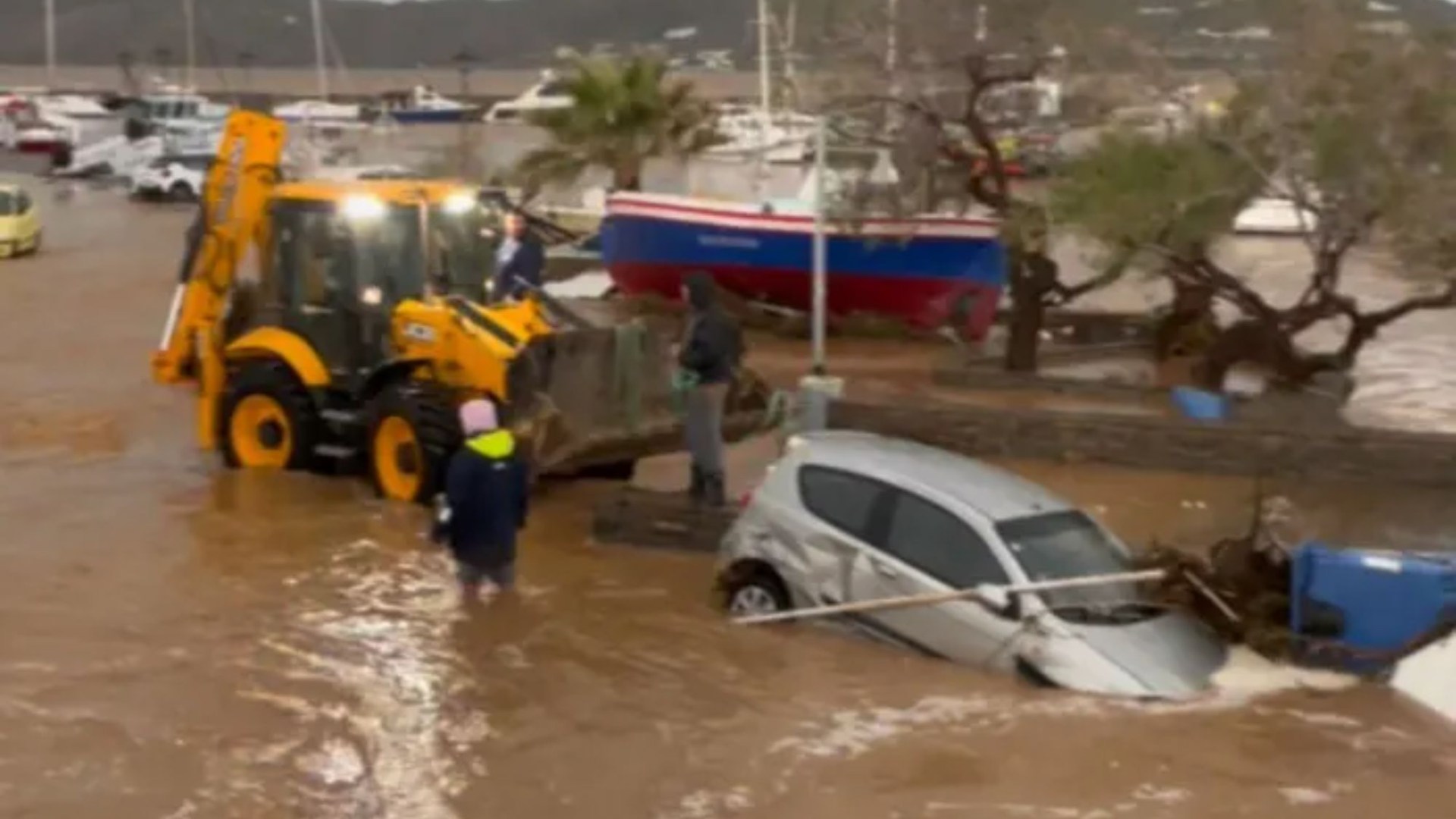HEAVY flooding across Paros and Mykonos has caused travel chaos for tourists across the Greek islands.
After the devastating weather conditions, travellers have wondered whether they should cancel their trips. Here’s everything you need to know.
Floods in Greece
A powerful storm swept across Paros and Mykonos on March 31, 2025, triggering a series of terrifying floods.
Floodwaters surged through the streets, carrying debris and cars along with them.
The weather conditions were less damaging on Mykonos, but schools and road networks across both islands in the South Aegean were closed.
Residents were sent mobile phone alerts which instructed them to remain indoors, while emergency services worked to save stranded drivers.
Read More on Travel Advice
Ahead of the closures, the Mayor of Paros released a statement reading: “We call on residents and visitors of our island, due to the dangerous weather phenomena affecting our island, as well as the major damage that has been caused to the road network, not to travel on the road network of our island. Emergency vehicles are excluded.”
A severe weather warning has been issued for islands in the Cyclades Group, which contains 220 of the Greek islands.
The UK government has yet to offer specific travel advice to Mykonos or Paros but extreme caution is advised.
Normal travel to Greece
As Greece is in the Schengen area, UK travellers are able to visit for 90 days without a visa.
However, those 90 days must all be within an 180 day period and this rule applies whether you are a tourist, visiting family, attending business meetings and short-term training.
Working in Greece, however, will likely require you to obtain a visa.
You are not allowed to take meat, milk, or products containing them into the EU, with the exception of baby milk, baby food, and special foods.
Travel insurance when travelling
Travel insurance is extremely important when travelling.
In emergency situations, such as the 2025 floods, you may be able to get a refund on your accommodation or flights.
It can even help you get healthcare abroad and can get you compensation for any items you lose while on holiday.
However, finding good travel insurance is not always easy, but it is important that it covers those basic necessities.
The best policies cover these basic points.
What should you look for in a good travel insurance policy?
TRAVEL insurance policies can vary a great deal, making it hard to know whether a policy is good enough for your trip.
Here are the six essential areas that travel insurance policy should cover:
- Medical expenses – A good policy will give cover of £1million or more for travel in Europe and £2million or more for the USA
- Repatriation service – The costs of getting you back to the UK for medical reasons should be covered automatically by your policy
- Cancellation and curtailment – A good policy will cover you for £2,000 or more if you have to cancel or shorten your holiday
- Missed departure – Covers additional accommodation costs and travel expenses up to £500 or more if you miss your flight due to circumstances out of your control
- Delay – You’ll usually be covered for £250 or more if your travel plans are delayed due to circumstances out of your control
- Baggage cover – Covers you if your baggage is lost, damaged or stolen. Look for policies that have cover of £1,500 or more.
Vaccinations in Greece
It is essential that you are up-to-date with your vaccinations before travelling to Greece.
Although you won’t need any particular vaccinations outside of the NHS programme, it is particularly important that you have your diphtheria vaccination.
In the UK, this is combined with your tetanus vaccination but it is not compulsory in Greece.
This means that you need to be protected before travelling.













